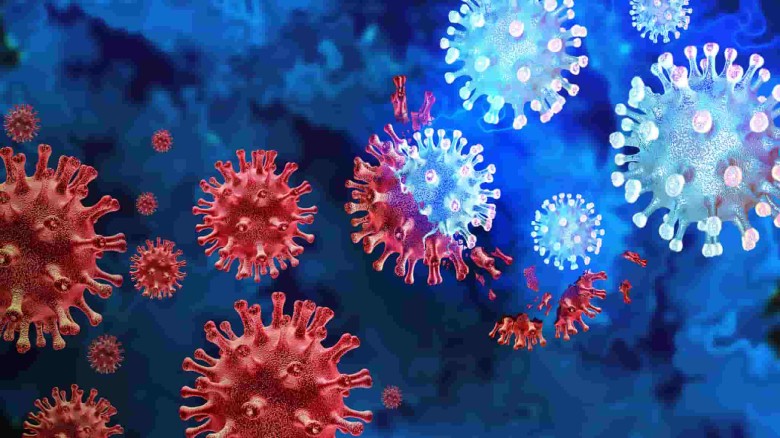North East

The top health body said it is still monitoring "several descendent lineages" of the coronavirus's Omicron variant, including two new sublineages with additional mutations associated with potential "immune escape characteristics."
Digital Desk: The World Health Organization (WHO) has alerted that the Covid-19 virus is still evolving and that new variants will emerge in the coming days. According to WHO's Covid-19 Weekly Epidemiological Update, published on Tuesday, the Omicron variant remains the dominant variant circulating globally.
The top health body said it is still monitoring "several descendent lineages" of the coronavirus's Omicron variant, including two new sublineages with additional mutations associated with potential "immune escape characteristics."
The WHO stated that it is still monitoring several descendant lineages under the Omicron Variant of Concern, including BA.1, BA.2, BA.3, and now BA.4 and BA.5. It also includes circulating recombinant BA.1/BA.2 forms like XE.
"A small number of BA.4 and BA.5 descendant lineage sequences have been detected in a few countries. Both have additional mutations in the Spike region (S:L452R, S:F486V) as well as distinct mutations outside of the Spike region. The S:L452R and S:F486V mutations are linked to immune escape characteristics," WHO.
It added that it is collaborating with scientists to better understand these lineages' characteristics and their public health implications.
As per WHO, the SARS-CoV-2 virus is still evolving. With such widespread transmission, new variants, including recombinants, will emerge.
Reportedly, the two new sublineages (BA.4 and BA.5) are being tracked by WHO as part of the Omicron variant. These variants contain additional mutations that must be investigated further to understand their impact on immune escape potential. Till now, only a few dozen sequences of these variants from a few countries have been reported.
Also Read: Nawaz Sharif to return to Pakistan after Eid: PML-N leader
WHO is collaborating with scientists to understand their current spread and any potential impact. WHO stated that Omicron's immune escape properties had been linked to a rapid and nearly synchronous increase in the global incidence of Covid-19 cases reported until the end of January 2022.
A delayed increase in case of occurrences in the Western Pacific Region and a rebound in the number of new cases reported in the European Region drove a further increase observed at the beginning of March.
"This trend was likely due to a combination of factors, including the predominance of the Omicron Pango lineages BA.1, then BA.2, with a transmission advantage over other Omicron lineages; relaxation of public health and social measures (PHSM); and waning of humoral immunity following vaccination or prior infection," it stated.
"The recent discovery of emerging recombinants of the Delta-Omicron and Omicron descendant lineages necessitates continued close monitoring," it added.
The WHO update added that the number of new Covid-19 cases and deaths worldwide decreased for the third consecutive week during the week of April 4 through 10, with over 7 million cases and over 22,000 deaths, a decrease of 24% and 18%, respectively, compared to the previous week.
Every region reported a decrease in new weekly cases and deaths. As of April 10, there had been over 496 million confirmed cases and over 6 million deaths worldwide.
"These trends should be interpreted with caution because several countries are gradually changing their Covid-19 testing strategies, resulting in lower overall numbers of tests performed and, as a result, lower numbers of cases detected," WHO added.
Globally, over 11 billion vaccine doses have been distributed. However, WHO noted that significant inequities remain, with only 11% of those in low-income countries (LICs) having completed the primary series, and significant regional differences, with vaccination coverage ranging from 82% in the Western Pacific Region to 13% in the African Region.
"There is particular concern about reaching the most vulnerable populations who remain unvaccinated, particularly those of older age and those with comorbidities," it said, adding that an estimated 35% of those aged 60 and over in the world are awaiting completion of the primary vaccination series.
Leave A Comment